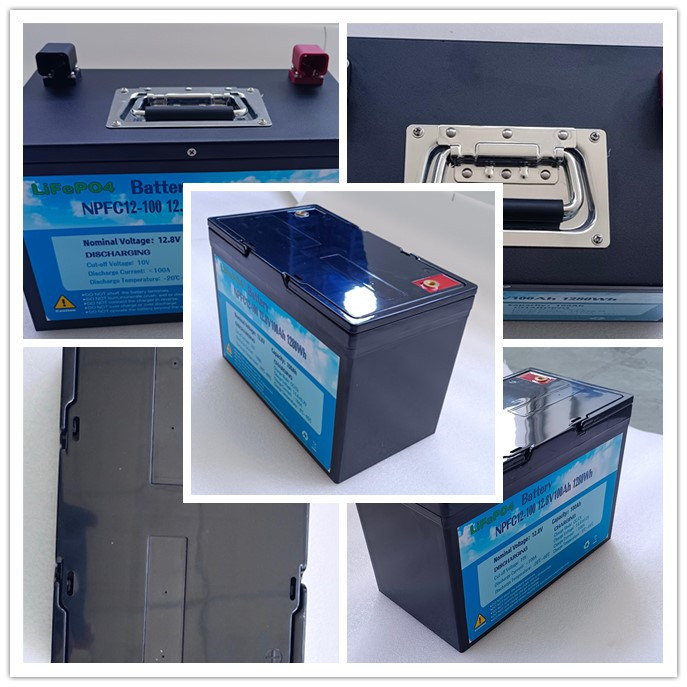
There are a variety of 12V batteries available on the market. This includes lead-acid batteries as well as lithium ternary battery, lithium iron phosphate battery, lithium titanate batteries and many more. Based on the different kinds of batteries there is a clear variations in the way they are packed and capacity density. They also differ in their life-span curve charging and discharge rates and price.
12V batteries are employed in solar street lights as well as in boat, RV and various other systems for starting cars and other systems for starting cars. In use it is utilized to store energy for supplying power to the device by charging and decharging.
You can make use of an external inverter that converts the power from battery to AC energy. This allows electrical appliances to be powered throughout the house.
The capacity of the battery could be increased by connecting the 12V batteries in parallel which will increase the longevity of the battery. The voltage is increased through connecting 12V batteries series. It can therefore be used for 24V and 48V lithium battery system.
Common 12V batteries that are on available include lead-acid battery Lithium-ion batteries iron phosphate batteries titanate batteries and sodium ion batteries that are coming soon.
Lead-acid batteries comprise the most fundamental form of 12V batteries. They're made up by lead plates, which are that are suspended in a solution made of sulfuric acid. It creates an chemical reaction which stores energy.
Lead-acid batteries that are flooded are the most popular type of lead-acid battery. They require sufficient water in these batteries to allow they to perform effectively. That means we must perform regular maintenance and monitoring of this battery. The lifespan of lead-acid batteries in floods is typically between 2 and 5 years, based on use and care. The cost of batteries can be quite different from $100 to around $1000.
Ternary lithium battery is one type in lithium batteries. Ternary lithium battery is an lithium battery which makes use of the ternary nickel-cobalt manganese oxide as a positive electrode.
From a structure point of perspective, a ternary lithium battery features a high density of energy as well as high discharge and charge performance. In general, ternary lithium batteries can be used in situations which have high energy density small space and high expectations for customer service. For instance, mid-to-high-end cars as well as many electric bicycles as well as electric vehicle batteries etc. make use of lithium batteries that are ternary.
Lithium iron phosphate can be described as a chemical compound LiFePO4 also known as "LFP" for short. LFP offers excellent electrochemical performance with low resistance and is considered to be one of the most durable cathode materials used in lithium-ion batteries. These batteries comprise of lithium iron phosphate, which is among the best lithium batteries available today. Also, it has exceptional endurance in the cycle.
The LiFePO4 battery can not only provide more than 3,500-5,000 cycles but have the ability to reach the full the depth of discharge (DOD). When you use LiFePO4 (unlike the other battery) there is no need to fret about over-discharging the battery. Additionally, you are able to utilize it for an extended period of time.
A lithium titanate-based battery (Referred to by LTO battery in the batteries sector) is a kind of rechargeable battery built on nano-technology that is advanced. This is a lithium ion battery with a negatively charged electrode materials namely lithium titanate. It can be utilized in conjunction with lithium manganate or ternary material or lithium iron phosphate, and other positive electrodes to create the 2.4V or 1.9V lithium ion battery secondary. Additionally lithium titanate batteries can also serve as positive electrodes in the creation of 1.5V primary lithium batteries using the lithium alloy or metal negative electrodes.
The best 12 Volt battery model for you has its own trade-offs. Every type of battery has its strengths and weaknesses, and they may differ based on the RV and the type of travel you prefer.
People with a limited budget could opt for a lower-cost lead-acid battery with a flooded design however, it will cost higher in the end. If you work frequently with extreme temperatures or freezing temperatures might want to stay clear of the lead-acid battery in favour of lithium-ion batteries. They have the ability to withstand extreme temperatures and provide better performance.
If your budget is reasonable then a lithium iron phosphate batteries will work better for you due to its lengthy cycle time and safety This is a good option for a variety of applications.
If your use is high, for example, hundreds of times daily it is recommended to use lithium titanate batteries. Despite this, the cost of lithium titanate batteries can be expensive and three times that of normal batteries. If the weather is extremely cold We also suggest that you make use of lithium titanate batteries as lithium titanate batteries will function normally in temperatures as low as 40 degrees.
Next:Comparing 12V 100Ah and 24V 100Ah Lifepo4 Batteries: Which is Right for You?
Previous:Which Tesla Have Lithium Iron Phosphate (LiFePO4) Batteries ?
Contact Person: Miss. Elsa Liu
| WhatsApp : | +8617763274209 |
|---|---|
| Skype : | +8617763274209 |
| WeChat : | 17763274209 |
| Email : | Elsa@lifepo4-battery.com |